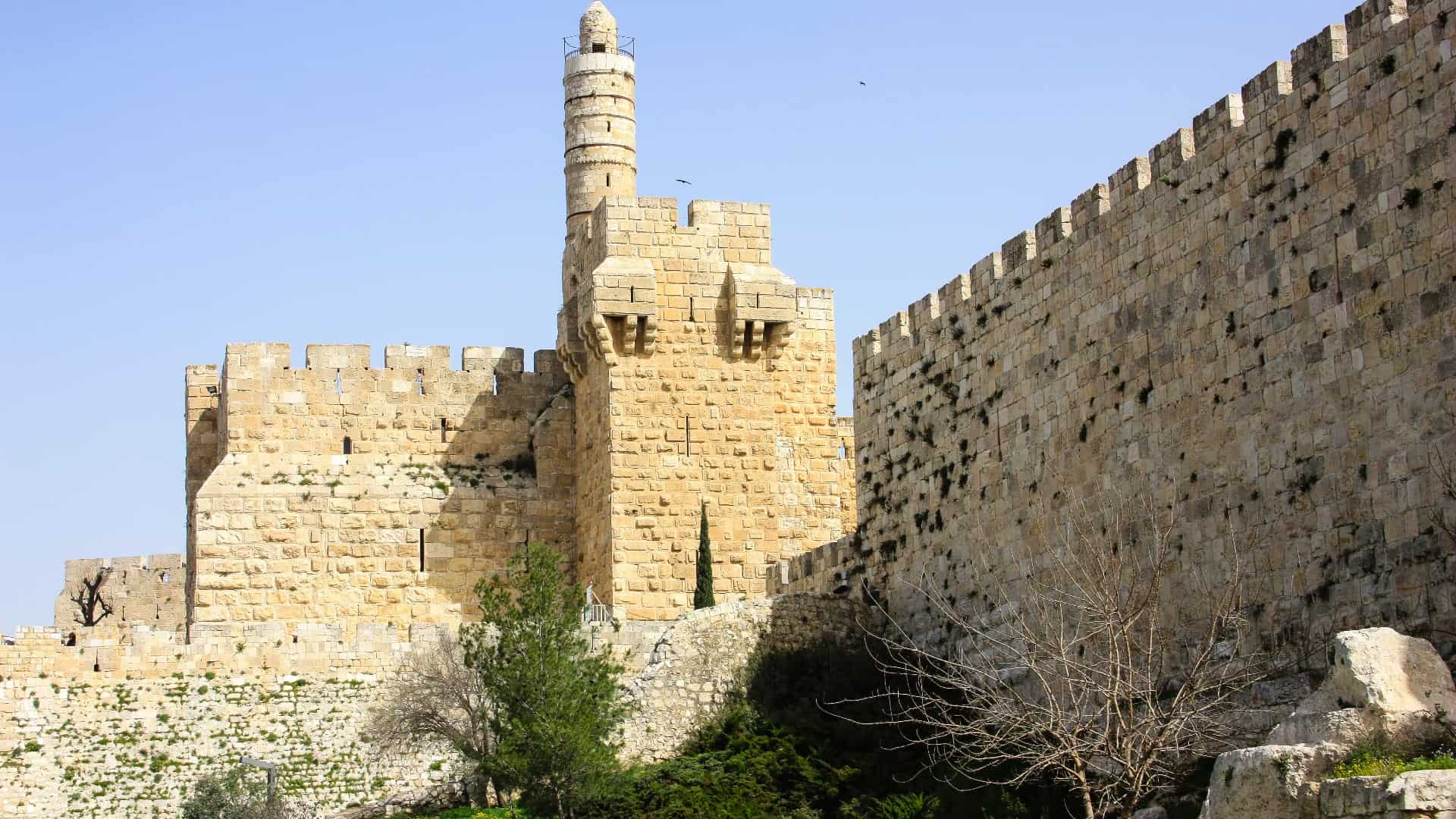What Happens When God’s People Fail? (Deuteronomy 28:58-68)


Big Idea: God's response to the failure of his people is to wage war and show grace, but his patience does not last forever.
If there’s been one thing that’s helped me through the past few weeks, it’s been our Bible reading plan. It’s helped to keep me rooted in a much bigger story than the COVID-19 pandemic. It’s lifted my eyes from what’s happening today to what God is doing in all of history.
We’ve been trying to preach through the Bible over seven weeks. And this is the fourth. We believe that the Bible is a unified story that includes you. It’s the story of God, the world, and God’s answer to the human predicament. If we are to figure out who we are and what our role is in this world, we need to understand this story. We need this more than ever.
Just a review of the past three weeks in case you’ve had other things on your mind.
- On week one we asked, “Why is the world glorious but broken?” We looked at the first eleven chapters of the Bible and saw that the world is glorious because God made it, but it’s also broken because we’ve wrecked it with sin. That explains why we have things like pandemics. The world is not the way God meant it to be.
- On week two we asked, “What is God’s plan to redeem the world?” We saw that Genesis begins with two people and then zooms out to give us a picture of all of humanity, before zooming into one particular family starting in Genesis 12: Abraham and Sarah. We saw that God promises to redeem the world through Abraham’s offspring — a promise that will survive our repeated failures.
- Last week we asked, “Who will God use to bless the world?” We saw that God created a nation out from Abraham’s descendants. Deuteronomy 4 tells us how God would use this nation, the nation of Israel. He would give Israel three things: freedom, his law, and land. God promised that the surrounding nations would say, “Surely this great nation is a wise and understanding people.” Then Moses added his own comments: “For what great nation is there that has a god so near to it as the LORD our God is to us, whenever we call upon him? And what great nation is there, that has statutes and rules so righteous as all this law that I set before you today?” (Deuteronomy 4:6-8)
So see, we’ve covered a lot of ground so far. If you’re tracking with what I just said, you understand a good chunk of the Bible, including some of the parts that people say are the hardest to understand.
Here’s basically what we’ve said so far. God created the world as a good place, but we ruined it by rebelling against him. But God launched a plan to save the whole world through the nation of Israel. That’s it. That’s the story so far.
Unfaithful
But here’s the next part of the story, and it’s a major one. What happens when God’s people fail?
Because they did fail, pretty much right from the start.
- As soon as they left Egypt, they started grumbling, and they didn’t stop.
- When God was giving them his law, they were busy building a golden calf to worship.
- When they finally occupied the land God promised, they built high places: local worship centers dedicated to rival gods.
And on and on. The nation of Israel splits in two, and by the time you get to read about all the kings of the divided nation, you’re ready to give up!
In fact, God says:
Thus says the Lord GOD: This is Jerusalem. I have set her in the center of the nations, with countries all around her. And she has rebelled against my rules by doing wickedness more than the nations, and against my statutes more than the countries all around her; for they have rejected my rules and have not walked in my statutes. (Ezekiel 5:5-6)
Another time, God compares Israel to a vineyard and says:
What more was there to do for my vineyard,
that I have not done in it?
When I looked for it to yield grapes,
why did it yield wild grapes?
(Isaiah 5:4)
There’s nothing more God could have done for his people. They were God’s plan A, and there was no plan B. God’s people were a massive disappointment.
Conditions
So what happened?
Right from the beginning, God told them what would happen if they didn’t follow him.
But if you will not obey the voice of the LORD your God or be careful to do all his commandments and his statutes that I command you today, then all these curses shall come upon you and overtake you…
The LORD will bring you and your king whom you set over you to a nation that neither you nor your fathers have known. And there you shall serve other gods of wood and stone. And you shall become a horror, a proverb, and a byword among all the peoples where the LORD will lead you away.
And as the LORD took delight in doing you good and multiplying you, so the LORD will take delight in bringing ruin upon you and destroying you. And you shall be plucked off the land that you are entering to take possession of it. (Deuteronomy 28:15, 36-37, 63)
If you ever want to stay awake at night, read the warnings of Deuteronomy 28. It’s bad!
Exile
God did exactly as he had promised. Just as Adam and Eve were exiled out of the Garden of Eden because of their disobedience, Israel was exiled out of their land.
In 722 BC, the king of Assyria captured the northern kingdom. We’re not left to guess at the reason. 2 Kings tells us:
And this occurred because the people of Israel had sinned against the LORD their God, who had brought them up out of the land of Egypt from under the hand of Pharaoh king of Egypt, and had feared other gods and walked in the customs of the nations whom the LORD drove out before the people of Israel, and in the customs that the kings of Israel had practiced…
Yet the LORD warned Israel and Judah by every prophet and every seer, saying, “Turn from your evil ways and keep my commandments and my statutes, in accordance with all the Law that I commanded your fathers, and that I sent to you by my servants the prophets.”
But they would not listen, but were stubborn, as their fathers had been, who did not believe in the LORD their God. (2 Kings 17:7-8, 13-14)
The ten tribes of the north never did return to Israel.
But what about Judah? Judah was the southern part of the kingdom, with Jerusalem, the city with the temple, where God promised to live forever. God had promised, “My eyes and my heart will be there for all time” (1 Kings 9:3). God promised to King David in Jerusalem that “And your house and your kingdom shall be made sure forever before me. Your throne shall be established forever” (2 Samuel 7:16).
What happened there?
In 597 BC, King Nebuchadnezzar defeated Jerusalem. From that point on, Jerusalem had to pay a tribute to Babylon. Just a few years later, in 586 BC, 136 years after the northern kingdom was taken into exile, the king of Judah stopped paying tribute to King Nebuchadnezzar of Babylon, and here’s what happened:
Therefore he brought up against them the king of the Chaldeans, who killed their young men with the sword in the house of their sanctuary and had no compassion on young man or virgin, old man or aged. He gave them all into his hand. And all the vessels of the house of God, great and small, and the treasures of the house of the LORD, and the treasures of the king and of his princes, all these he brought to Babylon. And they burned the house of God and broke down the wall of Jerusalem and burned all its palaces with fire and destroyed all its precious vessels. He took into exile in Babylon those who had escaped from the sword, and they became servants to him and to his sons until the establishment of the kingdom of Persia, to fulfill the word of the LORD by the mouth of Jeremiah, until the land had enjoyed its Sabbaths. All the days that it lay desolate it kept Sabbath, to fulfill seventy years. (2 Chronicles 36:17-21)
Game over. People killed or taken. Temple destroyed. Jerusalem ruined. Exile. Everything God promised if they didn’t obey him came true.
What Do We Learn?
So what do we learn from all of this? I think we learn one major lesson: don’t trifle with God. Or to put it another way, don’t mess with God.
It’s interesting. We’re in the middle of this pandemic. A lot of people are saying, “We didn’t see this coming!” But a lot of experts are saying that they warned us that this was coming, first in general terms, and then in January in very specific terms. I had friends warning me about it. But most of us thought they were a little extreme if we even heard them. I know I did.
That’s exactly what happened with Israel. Remember:
Yet the LORD warned Israel and Judah by every prophet and every seer, saying, “Turn from your evil ways and keep my commandments and my statutes, in accordance with all the Law that I commanded your fathers, and that I sent to you by my servants the prophets.”
But they would not listen, but were stubborn, as their fathers had been, who did not believe in the LORD their God. (2 Kings 17:13-14)
And then time ran out.
And it’s what can happen to us as well.
The Lord is so gracious. I’m reading a book right now called Gentle and Lowly, and it couldn’t come at a better time. The book reminds us of who Jesus is.
For all his resplendent glory and dazzling holiness, his supreme uniqueness and otherness, no one in human history has ever been more approachable than Jesus Christ. No prerequisites. No hoops to jump through…
Jesus is very approachable. He welcomes all who come to him. He never turns away from sinners.
But don’t make the mistake of thinking that Jesus can tolerate sin. Jesus repeatedly warns us about the danger of being self-deceived, of thinking we belong to him when we don’t. Jesus welcomes sinners who turn to him, but then he tells us to leave our sin and follow him.
In his book The Vertical Self, Mark Sayers, a pastor in Melbourne, Australia, describes what’s happening:
About four years ago … a creeping doubt began to enter my mind:
All our attempts to reshape Church in the West will be at best sabotaged and at worst fail because there is a huge unnamed problem with people inside the Church.
As I traveled around speaking at churches of all shapes, approaches, and flavors, I noticed that despite their completely different approaches, they had a common problem…
What is this problem? An identity crisis. “I began to realize that our lives have stopped speaking to the culture around us. The world looks at us and we look exactly the same as the world,” he writes.
I think he’s right. We’re not very different from Israel and Judah. This part of the story has a lesson for us. It’s one of the main themes I’ve picked up from reading the Bible in these 40 days: don’t mess with God! God is gracious, but he will keep his promises to judge us if we take his graciousness for granted.
He is, after all, “The LORD, the LORD, a God merciful and gracious, slow to anger, and abounding in steadfast love and faithfulness, keeping steadfast love for thousands, forgiving iniquity and transgression and sin, but who will by no means clear the guilty” (Exodus 34:6-7). Paul warns in Romans 2:
Or do you presume on the riches of his kindness and forbearance and patience, not knowing that God’s kindness is meant to lead you to repentance? But because of your hard and impenitent heart you are storing up wrath for yourself on the day of wrath when God’s righteous judgment will be revealed. (Romans 2:4-5)
I believe we need to recover a holy fear of God that changes the way we live so that we refuse to take sin casually. My fear is that some of us will presume on God’s kindness and face his judgment. It’s easy to think we can worship God and not really serve him wholeheartedly. We want to also do our own thing while we follow him. And yet this part of the story shows us what will happen if we do this. God doesn’t tolerate sin. He judges it. If we serve him with a divided heart, he will judge us. Please don’t let that happen to you.
So that’s it. What happens when God’s people fail? He warns. He extends grace. But his patience does not last forever.
“Take care … lest there be in any of you an evil, unbelieving heart, leading you to fall away from the living God” (Hebrews 3:12)
Father, thank you for not giving up on humanity when we sinned. We lost the Garden of Eden, but you launched a plan to rescue the world, and we’re thankful.
But we pray that we would not presume on your kindness. We need a holy fear of you that understands that you are a God who not only loves but judges.
Our only hope is Jesus. We are saved by his righteousness and not our own. All of us must look to him to live. But Lord, deliver us from presuming on your kindness and grace. Give us a holy fear of you and a desire to love you above all. We pray in the name of Jesus. Amen.





